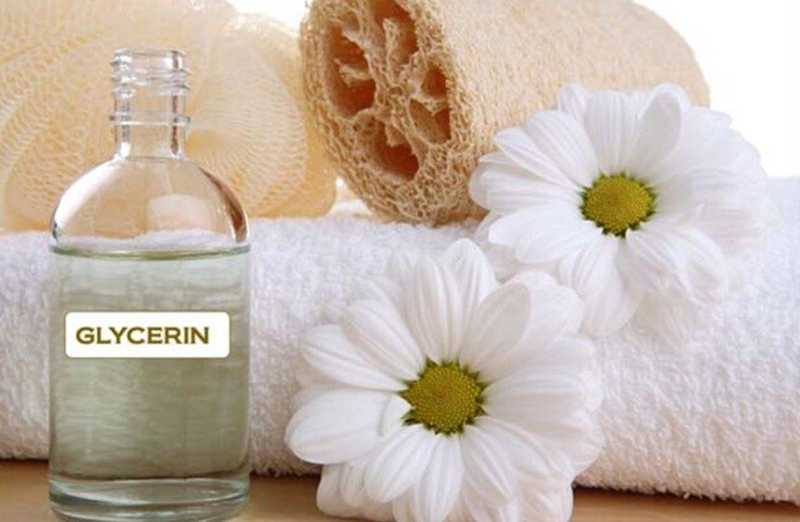An odorless liquid made from plant oils such as palm, soy and coconut is known as vegetable glycerin. Both the natural coconut and palm oils contain three fatty acids that are combine with glycerin (triglyceride). Vegetable glycerin is used in a range of items from cosmetics to foods, as well as herbal supplements.

What is Vegetable Glycerin
Vegetable glycerin is a syrup-like substance that can dissolve easily in water. It is created when three carbon atoms attach themselves to hydrogen on one side and hydroxyl on the other. Technically vegetable glycerin is an alcohol, however, it is classified as a carbohydrate by the Federal Food and Drug Administration (FDA) because it adds calories without being a fat or protein. 100% pure vegetable glycerin does not easily freeze. It can be also in a solid form when chilled, but it will be melt at 64.4°F. Adding vegetable glycerin to water will lower the freezing point of the water, which will be affected by the concentration of the glycerin. This is why it is often used as a non-toxic antifreeze or storing sensitive liquids in laboratories.
Uses of Vegetable Glycerin
Cosmetic Products
Vegetable glycerin is used in many face washes and moisturizers to prevent dry skin and aging of the skin. The moisturizing properties help keep the skin young and healthy by retaining its natural moistures while drawing more oxygen into the skin.
Skin Problems
Using a pure form of vegetable glycerin on your skin will help with acne, eczema, psoriasis, and other skin conditions. It is a naturally hypoallergenic, antibacterial product that will prevent aggravation and inflammation. Using the pure form instead of other products that include it as an ingredient is most beneficial.
Hair Care
Just as it does for dry skin, vegetable glycerin's moisturizing benefits work on the hair as well. There are many benefits to usehair care products that contain vegetable glycerin, however, using it in its pure form is more powerful. It can be used to treat dry, brittle hair or dry, flaky scalp by massaging it into the hair or onto the scalp.
Herbal Tinctures
Vegetable glycerin is very useful in creating herbal remedies. When extracting compound from the herbs, it can be used instead of alcohol. It is also great for giving herbal preparations a sweeter flavor for easier consumption.
Food
Vegetable glycerin is safe for diabetics to use as it does not have much of an effect on blood sugar levels even though it is a carbohydrate. It is a beneficial ingredient as it is a sweetener, moisturizer and natural preservative.
Dangers of Vegetable Glycerin
May Create Allergic Reactions
If you are allergic to coconut or palm oils, you need to avoid vegetable glycerin. There are also other preservatives added to products that contain vegetable glycerine to improve shelf life, which is bad. Many soaps, shampoos and lotions contain the sulfite preservatives that may create an allergic reaction very similar to asthma, or other symptoms such as itching, nausea, dizziness, diarrhea and hives.
May Be Toxic to You or Your Pets
Certain forms of vegetable glycerin can be harmful. Propylene glycol is a form of vegetable glycerin that have proved to be toxic to dogs, cats, horses and other animals. If you ingest this form, you may also have symptoms similar to ingesting too much alcohol. Ingesting high amounts of propylene glycol has also been known to result in central nervous system disorders, renal failure and even death in humans.
May Cause Skin Irritation
Vegetable glycerin may cause skin irritations if you have an allergy to any of the oils. Also using high doses of propylene glycol will cause skin irritations. Using vegetable glycerin in its pure form is best when creating your own home remedies for skin and hair conditions; it is also best to use the pure form when adding it as a preservative to homemade foods.
May Irritate the Mucous Membrane
Vegetable glycerin may cause an irritation in the mucous membrane which is also known as the "Kitchen Disease". When this occurs, some symptoms such as diarrhea, aches, wheezing and swelling of the tongue may occur. This may only occur if you have an allergy to coconut or palm oils and extracts.

View All Comments /Add Comment